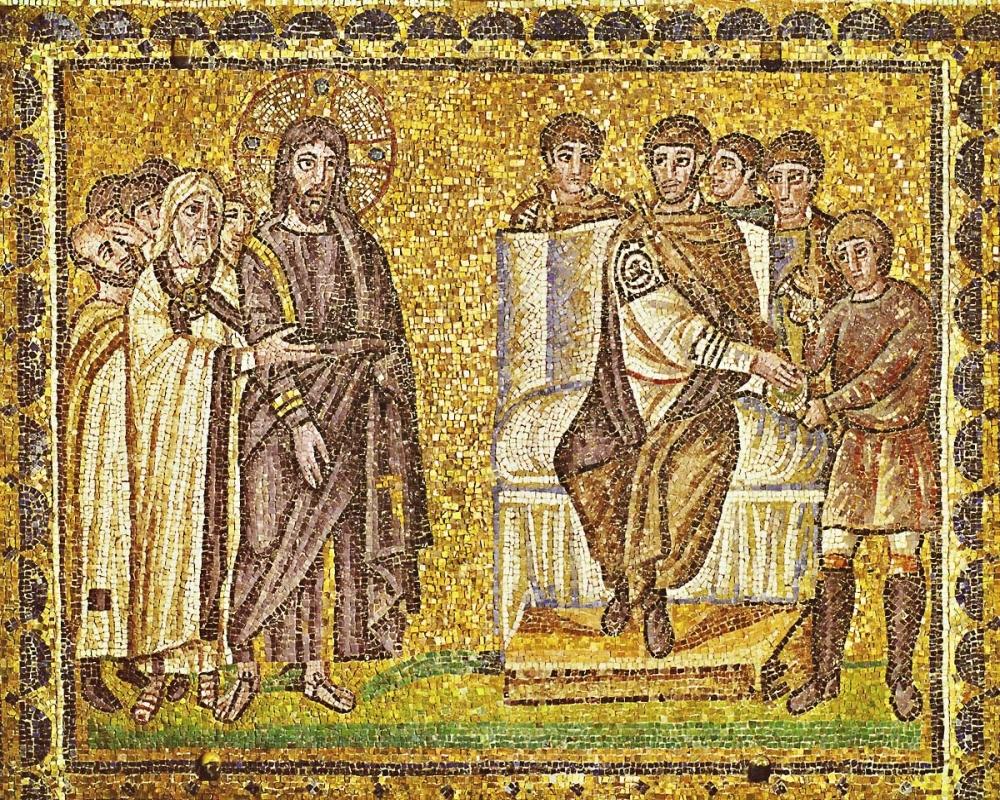Now at the feast
he used to release for them any one prisoner whom they requested. The man named
Barabbas had been imprisoned with the insurrectionists who had committed murder
in the insurrection. The crowd went up and began asking him to do as he had
been accustomed to do for them. Pilate answered them, saying, "Do you want
me to release for you the King of the Jews?" For he was aware that the
chief priests had handed Him over because of envy. But the chief priests
stirred up the crowd to ask him to release Barabbas for them instead. Answering
again, Pilate said to them, "Then what shall I do with him whom you call
the King of the Jews?" They shouted back, "Crucify him!" But
Pilate said to them, "Why, what evil has he done?" But they shouted
all the more, "Crucify him!" Wishing to satisfy the crowd, Pilate
released Barabbas for them, and after having Jesus scourged, he handed him over
to be crucified.
Now Barabbas actually was the kind of man the priests
were accusing Jesus of being. He was a
brigand, a rebel, and he not only attacked Romans and Jews, but he had killed one.
Pilate suspected that the chief priests’
accusations were an exaggeration and so he used a custom he had to determine
their seriousness. Pilate was well-known
in Judea and Galilee as a harsh, violent ruler.
To try to placate the people, he allowed the Judeans to chose one person
whom he had imprisoned to set them free.
He did this on Passover, one of three feasts a year where Jews from all
over the world would come together in Jerusalem. So Pilate offered the crowds a choice:
Barabbas, a rebel and criminal, or Jesus, a religious leader dependent on
God. The priests had already selected
the crowd before Pilate, so they all called out for Barabbas to be freed.
Pilate was extremely frustrated and he asked,
“So what do you want me to do with this man whom you call king?” Pilate was purposing to goad them into
denying that he was a king, and so deny their testimony. But they just called out for Jesus to be
crucified. Pilate tried to argue with
them, but they called out “Crucify” again and again until Pilate gave into
their wishes. Pilate wasn’t just
wishy-washy here—he couldn’t afford for the people to raise a complaint to
Caesar about him, and so he was hesitant to go against the people in such a
questionable case.
Crucifixion is an
execution given to a non-citizen or a traitor.
A Roman citizen who was so evil to need to be executed would be killed
by beheading. A Jewish citizen who was
so evil to need to be executed would be killed by stoning. But the one who is
crucified is accepted by no nation, an outsider. For the Judeans and Pilate to command him to
be crucified means that Jesus was rejected by both Jews and Gentiles—he was an
outcast.
Who are these people shouting "Crucify him!"? They are supporters of the high priest and the Sanhedrin. They are the people who believe that their leaders are always right and that their people should be supported no matter what. They are the common party-members, patriots and lovers of their nation. They heard their leaders say, "This is the enemy of our nation. This is the destroyer of our peace. He must be gotten rid of." And so they work toward the destruction of the enemy for which they have no evidence to condemn.
In the Bible, condemning and punishing the innocent is one of the most serious crimes. It is not just a criminal act, it is the undermining of all justice and peace in one's nation. Every time that we condemn a whole people, then we are setting aside the righteousness of God for our own prejudice. Every time that we agree with other people's condemnation, instead of looking for proof, then we are the guilty one. Every time we point the finger at someone when we don't actually know, we are condemning Jesus all over again.
True patriotism judges with a right judgment, so that justice might not be undermined.





